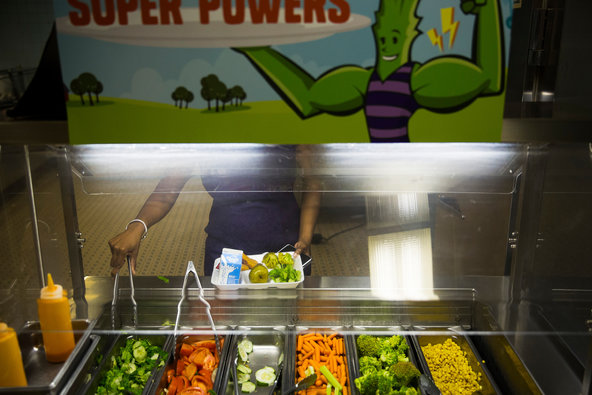It is a challenge that every parent faces: How to encourage our kids to eat more vegetables. Most health-conscious parents know that there is no substitute for salads, raw veggies, and cooked vegetables and greens. Vegetables are the most nutrient-dense of all foods, containing vital minerals, antioxidants, amino acids, and other nutrients that promote good health better than any supplement we could take. But how can we convince our kids to eat them? With pizza and pasta vying to take center stage as favorite dinners in many households, it can become quite a challenge to change eating habits.
A recent study published in the Journal of Pediatrics by Dr. David R. Just, a professor of Applied Economics at Cornell, indicates that the key to this dilemma can be found in the same marketing techniques that have been used for decades to try to get kids to eat junk food. Professor Just and his research colleagues assigned ten elementary schools to one of four groups. In the first, they posted vinyl banners around the salad bar depicting cartoon vegetable characters with “super powers.” In the second, they showed television cartoons of the characters. The third got both cartoons and banners, and the fourth group, designated a control group, and got no intervention at all. They ran their study over six weeks.

Photo Credit: Damon Winter/The New York Times
The study was reported on by the New York Times “Well” blog, and the results were remarkable. Compared to control schools, TV segments alone produced a statistically insignificant increase in vegetable consumption. But in schools decorated with the banners alone, 90.5 percent more students took vegetables. And where both the banners and the TV advertisements were used, the number of students taking vegetables increased by 239.2 percent.
So it seems that our children can change their eating habits for the better if they have the right information and constant reminders. Dr. David R. Just commented that marketing is not all evil. It can be used to do good things too. But putting healthy eating programs into practice, he said, presents problems for schools if they are left to do their own marketing. He advocates national programs with sufficient funding to reach all sectors of society.
Of course, nothing beats home education. We as parents can teach our children much more by what we do than by what we say. If our children see us eating a healthful diet at home and we teach them the benefits of vegetables and other wholesome foods, then there is a good chance that they will take healthy eating habits with them into adulthood.
I have written Wai Lana’s Favorite Soups and Wai Lana’s Favorite Juices to help you with ideas to get fresh vegetables and fruits into your family’s diet.
Wishing you well,
Wai Lana



